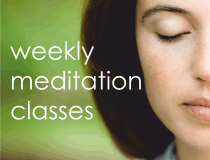
Mind-Body Wellness LLC
Dr. Efrain Centeno PhD, LCSW, ChT.
Online Virtual Appointments Only
425-202-5899 wwww.mbwellnesscenter.com


MEDITATION
TRAINING - CLASSES - TREATMENT
Virtual and Live Healing Meditation Class - Most Fridays 6:30pm
Join the many people that have healed and enhanced their healthcare by taking this class. This Health & Healing Meditation class is especially for people who need emotional or physical healing. This class meets every Friday year round.This slow guided meditation blended with guided imagery helps to heal PTSD, anxiety, depression, insomnia, nightmares and physical health issues such as chronic pain and the acceleration of healing cancers and heart disease. Taught privately or individually.
Mindfulness-based stress reduction (MBSR)
is a mindfulness-based cognitive therapy program developed by Jon Kabat-Zinn at the University of Massachusetts Medical Center, which uses a combination of mindfulness meditation, body awareness, to help people become more mindful. In recent years, meditation has been the subject of controlled clinical research. This suggests it may have beneficial effects, including stress reduction, relaxation, and improvements to quality of life, but that it does not help prevent or cure disease. While MBSR has its roots in spiritual teachings, the program itself is secular“ .
We offer a Stress and Anxiety Reduction Program, focusing on reducing psychological and physical discomfort, which can interfere with your daily life. Our program features a holistic approach to combat stress, addressing not only your mental and physical well-being, but also your spiritual, emotional and energetic needs. Our techniques are designed to activate your body’s natural healing ability and promote long-lasting results. With a strong community of supportive peers, you’ll feel less alone in your struggle. Sign up today and start your journey toward a healthier, more balanced life!




